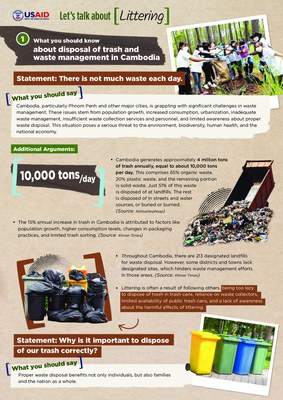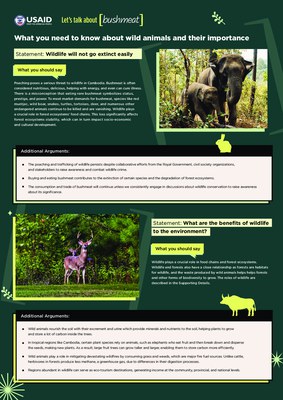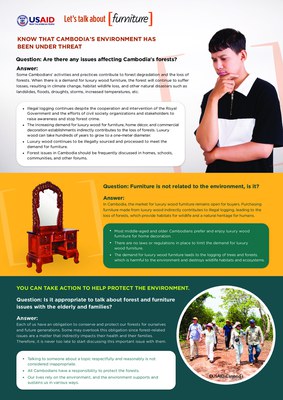File

The USAID Cambodia Green Future Activity worked to empower Cambodian citizens—particularly youth—and civil society to use evidence-based social and behavior change communication (SBCC) to influence positive actions to support biodiversity conservation.
Located in
Library
File

The USAID Cambodia Green Future Activity worked to empower Cambodian citizens—particularly youth—and civil society to use evidence-based social and behavior change communication (SBCC) to influence positive actions to support biodiversity conservation.
Located in
Library
File

The USAID Cambodia Green Future Activity worked to empower Cambodian citizens—particularly youth—and civil society to use evidence-based social and behavior change communication (SBCC) to influence positive actions to support biodiversity conservation and forest protection and combat climate change.
Located in
Library